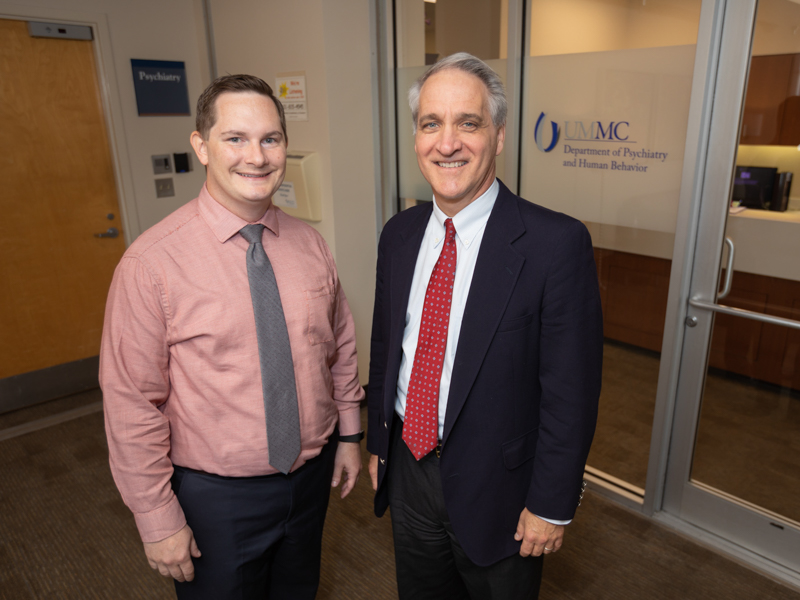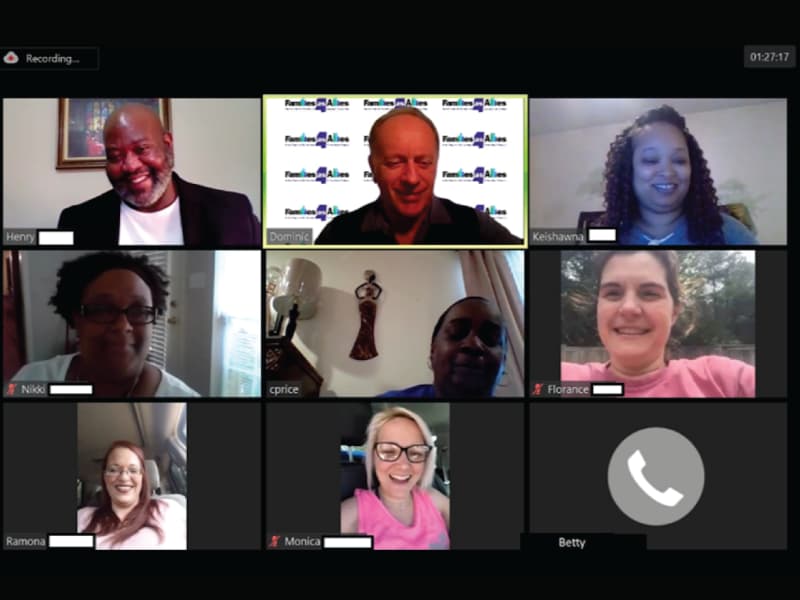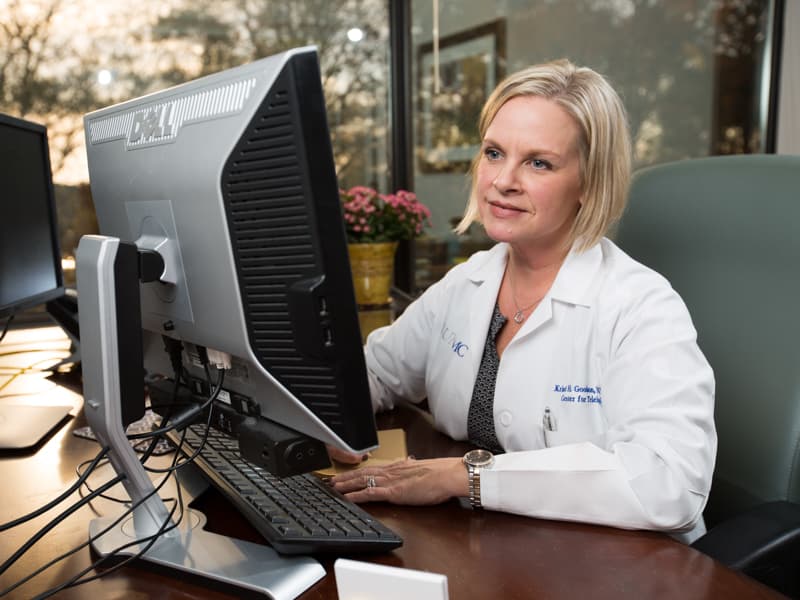Pilot project becomes mental health CHAMP during pandemic

Much of the groundwork for behavioral health care offered through telehealth to children in Mississippi during the COVID-19 pandemic was first laid two years ago.
CHAMP, a pilot project launched in 2018 by the University of Mississippi Medical Center, the Mississippi Department of Mental Health and Families as Allies, is helping bridge access barriers separating families in Mississippi from the behavioral health care their children need.
An acronym for Child Access to Mental Health and Psychiatry, CHAMP is in the second year of a five-year $2.3 million federal cooperative agreement through the Health Resources Services Administration. The project is being implemented through UMMC’s Department of Psychiatry and Human Behavior.
The project works as a hotline connecting primary care providers to child mental health experts at UMMC.
“Instead of waiting for an appointment with a mental health professional, a child’s primary care provider can call us,” said Dr. Dustin Sarver, assistant professor of pediatrics and a clinical child psychologist. “Within 30 minutes or less, a UMMC mental health professional is available through telehealth to consult with their physician to help that child and family.”

Consults for providers include help with diagnostic clarification, medication adjustment or treatment planning.
The CHAMP concept of linking patients and their primary care providers with behavioral health care via telehealth was tailor-made for responding to a pandemic, Sarver said.
CHAMP was originally started in medically underserved areas of the Mississippi Delta as well as in the Jackson metro area, covering 24 counties of the state.
Mississippi has the lowest number of psychiatrists per capita in the nation and the third lowest ratio of behavioral health professionals to primary care providers. Of Mississippi’s 82 counties, 45 do not have a single practicing psychiatrist or psychologist.
“Mississippi is a rural state, and families and children living in rural areas, especially in and around the Delta, have difficulty accessing behavioral health professionals,” said Lynda Stewart, division director of Children and Youth Service of the Mississippi Department of Mental Health. “This program is growing rapidly and providing support for some of the areas where mental health services are needed most. The Division of Children and Youth Services at DMH is thrilled to partner with UMMC to promote CHAMP and this needed access to mental health services.”
“When the outbreak of the novel coronavirus first hit Mississippi, we expanded CHAMP for statewide service,” Sarver said. “If anything, the pandemic lit a fire under CHAMP’s expansion to meet our state’s need.”
Sarver and Dr. Philip Merideth, professor of psychiatry and medical director for the CHAMP team, are co-principal investigators of the project.
“Our response to COVID-19 has given CHAMP the opportunity to expand much earlier than originally planned,” Merideth said.
One of CHAMP’s goals was to “unclog the bottleneck” to behavioral health care, Merideth said. The delay of seeing a primary care provider to get a referral, and then waiting for that appointment, is erased when the behavioral health consultation can happen, via telehealth, at the point of referral.

The result, Sarver and Merideth said, has been easier access to care without the expense and exposure of travel.
“Sometimes things move slowly in Mississippi, but this hasn’t,” said Sarver. “It’s really nice to see how satisfied families and provider are with the CHAMP model. This is more convenient for families, and providers love the immediate access to a mental health professional.”
So far, more than 20 pediatric primary care practices, representing nearly 50 providers, have enrolled in CHAMP, but that number is growing, said Carson Allen, project manager.
In the pandemic’s first wave, there was a medical response, Sarver said, “but in a second wave, we will likely see increases in child abuse, trauma, anxiety, stress and worry that will call for a mental health response as well, and we are here to help.”
Joy Hogge, executive director of Families as Allies, said the group is excited about CHAMP and its growth in response to the COVID-19 pandemic.
“Data we have gathered prior to the pandemic show that families want services close to where their children are and in familiar surroundings,” she said. “Since the outbreak of COVID-19, we think families will want that even more. We are excited that as CHAMP has grown, we have been able to extend our policy work and leadership training for families with it.”
A list of COVID-19 mental health resources and CHAMP’s hotline number are available at umc.edu/CHAMP.


